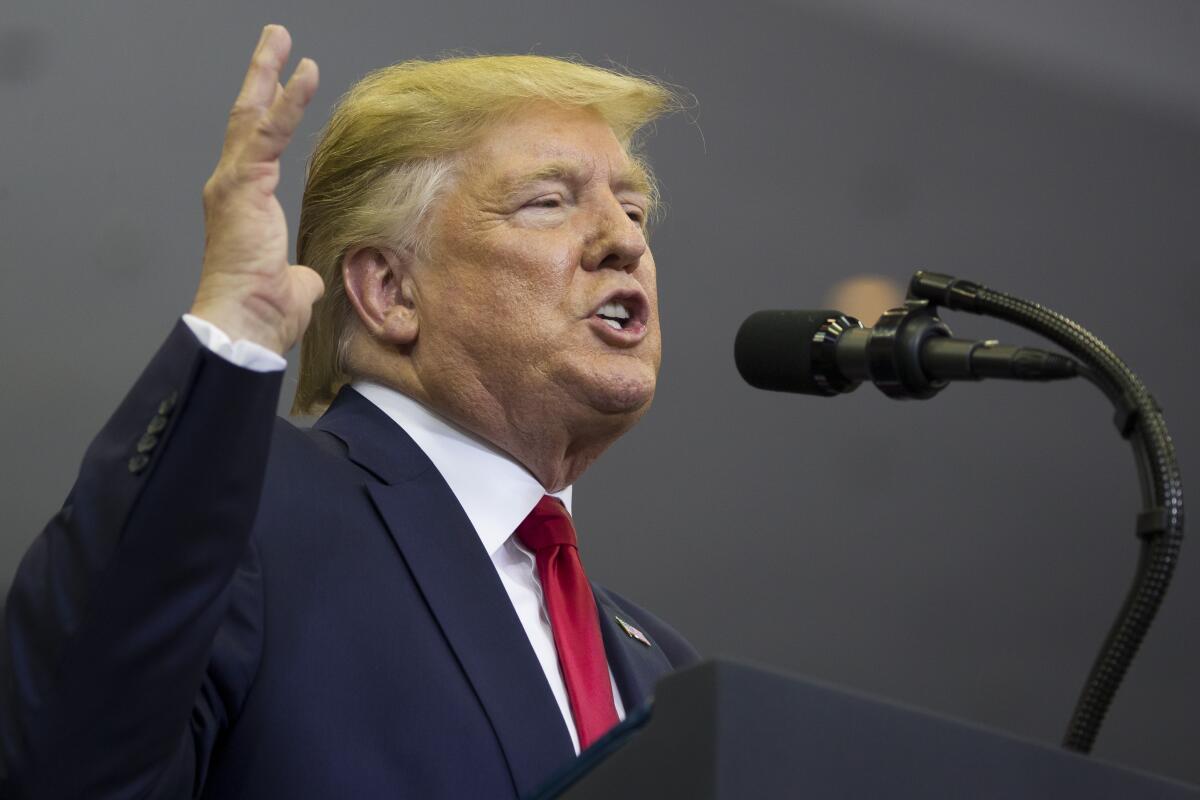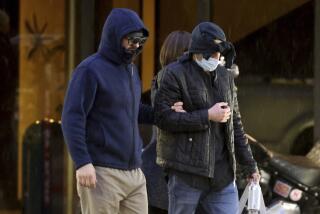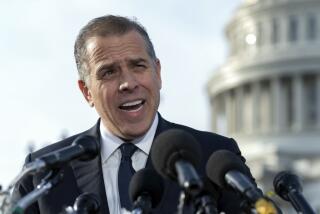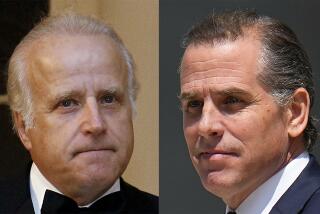Second whistleblower emerges in Trump impeachment inquiry, said to be one of ‘multiple’ complainants

A second whistleblower has come forward in the fast-developing impeachment inquiry against President Trump, and more may be in the offing, raising the possibility of damaging new disclosures as people in proximity to the president begin to provide evidence.
Mark Zaid, a lawyer for the original whistleblower in the case, said Sunday that his team now represented a second person who had come forward. Another lawyer on the legal team, Andrew Bakaj, tweeted later that the firm was representing “multiple” whistleblowers but provided no details on the number, the status of their complaints, or whether they were also part of the intelligence community.
Zaid, in remarks first reported by ABC News and confirmed by him on Twitter, said the latest whistleblower had direct knowledge of White House dealings with Ukraine.
Although there is no legal requirement that a whistleblower have firsthand knowledge — and much of the first whistleblower’s account has been corroborated — Republican allies of Trump have sought to rebut the charges by referring to them as “hearsay.”
Like the original whistleblower whose complaint jump-started the impeachment inquiry last month, Zaid said the latest one also comes from within the intelligence community and also has been in contact with the intelligence inspector general, the reporting path set out by federal law for whistleblowers.
The impeachment inquiry so far has centered on a July phone call in which the president urged Ukraine’s President Volodymyr Zelensky to open an investigation into former vice president Joe Biden and his son, Hunter, and also to look into a discredited conspiracy theory about Ukraine’s role in the 2016 election.
Biden, a front-runner for the 2020 Democratic presidential nomination, has vehemently denied any wrongdoing, and no evidence against him has emerged.
The president, spending a cloudy autumn Sunday at the White House, sought anew to defend his calls for Ukraine and China to investigate the Bidens and to help discredit the finding by special counsel Robert S. Mueller III that Russia worked to aid Trump in the 2016 vote.
Trump and his allies have tried to cast his appeals to foreign governments as part of a wide-ranging anti-corruption drive, though the president, when asked last week, could not name another such case that did not involve the Bidens.
No senior White House official appeared on Sunday’s major news-talk shows to defend the president, but some Republican lawmakers who took up that task have adopted a new talking point, suggesting he was only joking when he asked foreign powers to initiate investigations of his rival.
On Thursday, in a televised question-and-answer session with reporters outside the White House, Trump called on Beijing, with which he is in the midst of a trade confrontation, to look into the former vice president and his son, as he had earlier urged Ukraine to do.
“You really think he was serious?” Rep. Jim Jordan of Ohio asked on ABC’s “This Week.” On CBS’ “Face the Nation, Sen. Roy Blunt of Missouri said: “I doubt the China comment is serious.”
Trump’s tone, however, was not jocular.
“China should start an investigation into the Bidens, because what happened in China is just about as bad as what happened with Ukraine,” the president said Thursday.
On Sunday, he struck a similarly strident tone, tweeting that “as President, I have an OBLIGATION to look into possible, or probable, CORRUPTION!”
Trump’s accusers have characterized the public remarks about China as an effort by the president to try to convince Americans that appealing to foreign governments for political help is a normal part of diplomacy. Federal law prohibits candidates from receiving money or other things of value from foreign governments, and U.S. diplomats have described Trump’s overtures as unprecedented.
The existence of the second whistleblower — and perhaps others — could galvanize what so far has been a very small contingent of Senate Republicans, led by Utah Republican Mitt Romney, who have expressed concern that the president’s actions might have constituted an abuse of power and a threat to national security.
GOP lawmakers have generally gone to considerable lengths to avoid angering the president, particularly if they sense that previous public statements could come back to haunt him.
Sen. Ron Johnson of Wisconsin, who earlier questioned the president directly about crucial military aid to Ukraine being withheld, insisted on NBC’s “Meet the Press” that at the time, he firmly believed Trump’s denial that the aid was being used as leverage.
“When I asked the president about that, he completely denied it, he adamantly denied it, he vehemently, angrily denied it — he said, ‘I’d never do that,’” Johnson said on NBC’s “Meet the Press.”
In a combative exchange with host Chuck Todd, he said Trump was right to demand “an accounting of things in 2016.”
“Who set him up?” he asked.
On the same program, Sen. Chris Murphy (D-Conn.) said Republicans were going to “wild lengths” to avoid being subjected to Twitter tirades like the one Romney has faced in recent days, in which the president called the Utah Republican “pompous” and an “ass.”
Democrats, meanwhile, suggested that others with crucial knowledge of events surrounding Trump’s twin obsessions with the Bidens and the 2016 vote might now feel emboldened to come forward, whether out of self-preservation or a sense of moral outrage.
Rep. Jim Himes of Connecticut, appearing on CBS’ “Face the Nation,” predicted that more staff members in sensitive positions would either initiate whistleblower complaints or provide damaging information to the news media.
“His behavior has gotten to a place where people are saying, ‘Enough,’” said Himes, the second-ranking Democrat on the House Intelligence Committee. “People who were at the very core of all these events are saying, ‘This can’t happen any more.’”
Trump has furiously denounced the original whistleblower and congressional Democrats spearheading the inquiry, while seeming at the same time to implicate others in his own inner circle.
On Sunday morning, he sent out back-to-back tweets saying that “the great Scam is being revealed!” and the “Do Nothing Democrats are being exposed!”
Democrats appeared energized, however. On ABC’s “This Week,” the chair of the Democratic caucus, Rep. Hakeem Jeffries of New York, said the inquiry was gathering momentum.
“We think there’s growing support for the impeachment inquiry that exists, across party lines,” said Jeffries.
Trump, he said, “betrayed his oath of office. He’s engaged in serious wrongdoing.”
More to Read
Get the L.A. Times Politics newsletter
Deeply reported insights into legislation, politics and policy from Sacramento, Washington and beyond. In your inbox three times per week.
You may occasionally receive promotional content from the Los Angeles Times.






